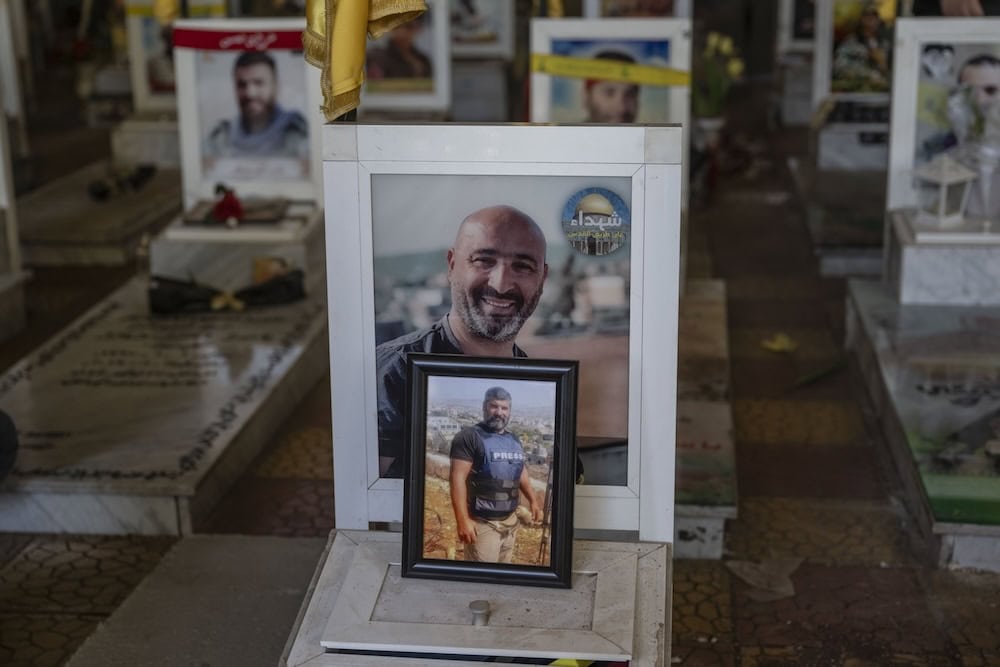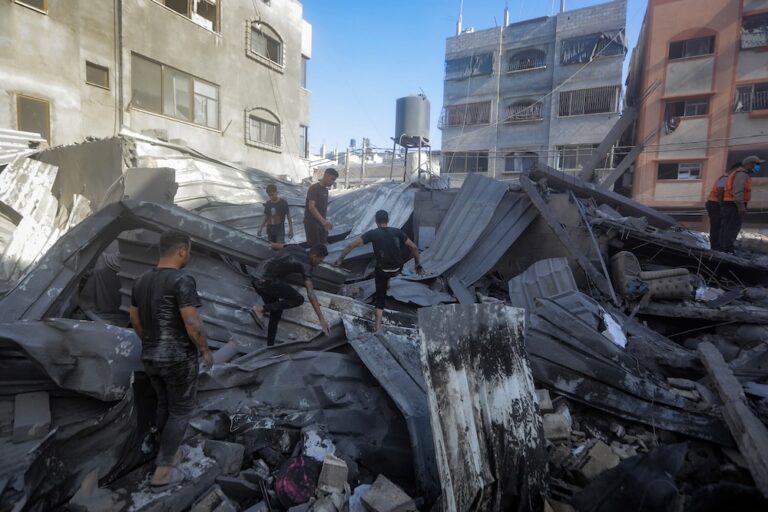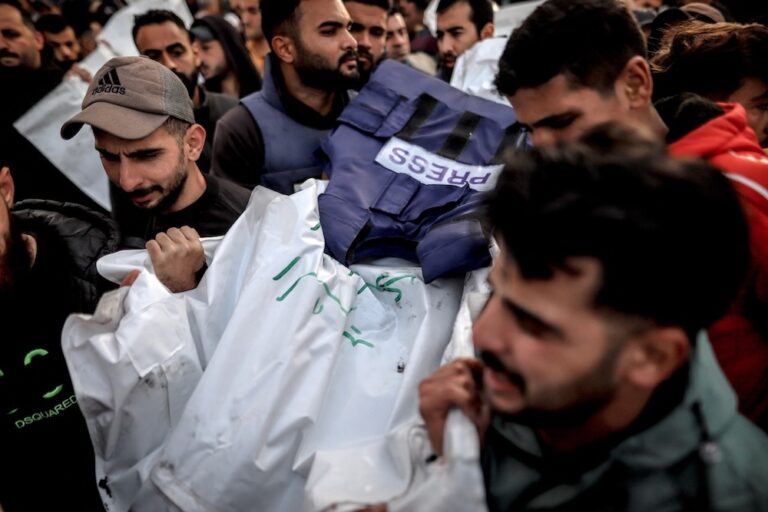"The evidence we have seen indicates it was likely a targeted strike on media professionals, which constitutes a war crime" - RSF.
This statement was originally published on rsf.org on 25 October 2024.
An Israeli strike on a building known to house media workers in the village of Hasbaya in southern Lebanon killed and injured several journalists. Reporters Without Borders (RSF) condemns the apparently targeted strike against the press, and calls for an independent investigation into this possible war crime. RSF calls for urgent protection for journalists in Lebanon as the war continues to spread.
At around 3 a.m. in Lebanon on the night of 24-25 October, according to information verified by RSF, an Israeli air force raid hit a guest house in the town of Hasbaya, located some 10 kilometers from the country’s border with the Israeli-occupied Golan Heights.
Ghassan Najjar and Mohamed Reda, respectively cameraman and broadcast engineer for the Lebanese channel Al-Mayadeen, were instantly killed in their sleep. The strike occurred two days after the bombing, on 23 October, of Al-Mayadeen’s office in Dahyeh, a southern suburb of Beirut. Wissam Qasim, cameraman for Al Manar, Hezbollah’s communication arm, was also killed in the strike on the guest house in Hasbaya. Meanwhile, a cameraman from the international news channel Al-Jazeera, Ali Mortada, is still hospitalised.
Eighteen people employed by local and international media were spending the night in the facility, known for hosting the live sets of several TV channels since the beginning of October, according to statements by Lebanese Minister of Information Ziad Makary. Among the crew were staff of the private Lebanese channel MTV, the Emirati news channel Sky News Arabia, the Qatari channels Al-Jazeera and Al Araby, the Egyptian TV stations Al Qahira News – controlled by the General Intelligence Services – and Al-Ghad TV, as well as the Turkish international outlet TRT World.
“This latest Israeli strike on a building known to house journalists is an outrage. The evidence we have seen indicates it was likely a targeted strike on media professionals, which constitutes a war crime. In order to allow for an international investigation into this incident, we urge the Lebanese government to recognise the jurisdiction of the International Criminal Court without delay. Failing to do so will only contribute to further impunity. We also call yet again on Israeli forces to immediately cease attacks on journalists in Lebanon, in Gaza, and the surrounding areas.”
Rebecca Vincent, RSF’s Director of Campaigns
Reports by Muhammad Farhat, a correspondent for the private Lebanese TV station Al-Jadeed and a survivor of the attack, bear witness to the violent impact. In front of the guesthouse, a vehicle marked “Press” lay overturned on its roof. Inside the destroyed building, rubble covered helmets, bullet-proof vests, and broken cameras. The Lebanese Minister of Information described the strike as a war crime. The Israeli army has not yet reacted.
This strike was Israel’s third direct attack on journalists in Lebanon. More than a year ago, on 13 October 2023, the Israeli army killed Reuters reporter Issam Abdallah in a strike in the south of the country that targeted a group of journalists on a reporting trip. On 21 November 2023, two Al-Mayadeen reporters, Farah Omar and Rabih Maamari, were also killed in an Israeli strike.
Since 23 September 2024 and the intensification of Israeli bombardments in Lebanon, journalists have borne the brunt of flagrant breaches of the laws of war perpetrated by the parties to the conflict, as well as the lack of protection provided by the Lebanese state.



